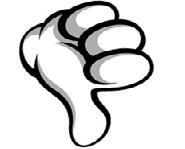Government/Policy

July 16, 2017
Section 232: A Shot in the Foot?
Written by Sandy Williams
What should the administration consider when evaluating the potential use of Section 232 to restrict steel imports? The U.S. Chamber of Commerce, which serves as a voice for business interests in Washington and represents more than three million businesses of varying size, sector and region, offered five questions that should be answered:
Do All Steel Imports Raise National Security Questions?
The answer is no, says John Murphy, senior vice president for international policy. Plenty of steel-consuming industries have nothing to do with national security and require steel imports that are not available domestically. Imposing tariffs against all steel imports would harm those industries.
Do Steel Imports from Allies Threaten U.S. National Security?
No, has been the answer from all of America’s allies. Under NATO and other U.S. defense treaties, an attack on one country is an attack on all. Purchasing steel from allies does not undermine domestic steel producers when it comes to our common defense. Tariffs against our closest trade partners, Canada and Mexico, would harm and not help the U.S. steel industry, says Murphy.
Could Broad Steel Tariffs or Quotas Harm U.S. Competitiveness?
Yes, says the U.S. Chamber of Commerce. Murphy cites as an example Section 201 “safeguard” tariffs on steel products imposed in 2002 and 2004. The tariffs boosted costs for manufacturers that use steel to produce goods in the U.S. and, according to one study, cost 200,000 Americans their jobs—more than the total number of American employees in the U.S. steel industry at the time.
“Imposing broad tariffs or other barriers against steel imports would undermine the competitiveness of U.S. manufacturers, incentivize offshoring, and endanger more American jobs than it would protect,” says Murphy.
Will Tariffs Invite a Counter-punch from Abroad?
Yes, and quickly, according to European Commission President Jean-Claude Juncker, who said retaliation would come within days, not months, of any tariff action by the United States. Products on the hit list for EU retaliation include Florida orange juice, Kentucky bourbon and Wisconsin dairy products, says Murphy. Not only would retaliation occur, he adds, but it would test the World Trade Organization’s national security exception on tariffs and quotas. Murphy cites a Financial Times report that said if the WTO were to issue a finding against a U.S. national security claim and it was ignored by the Trump administration, it would threaten WTO credibility. Conversely, if it found in favor of the U.S, it would open the door to a “protectionist free-for-all.”
Would this Arrow Hit the Target?
Not really, says Murphy. The globally recognized problem in the steel industry is steel overcapacity. China, the largest contributor to overcapacity, accounts for just 2 percent of U.S. steel imports. China has taken steps to reduce capacity and is ahead of its current target. The G20 summit called for development of concrete policy solutions by November to reduce excess steel capacity and unanimously supported the removal of market-distorting subsides by governments and other entities to “foster a truly level playing field.”
“It’s no panacea,” says Murphy, “but it goes to the heart of the matter. In the end, we do know this: The archer who doesn’t take careful aim risks shooting his allies—or even shooting himself in the foot.”







